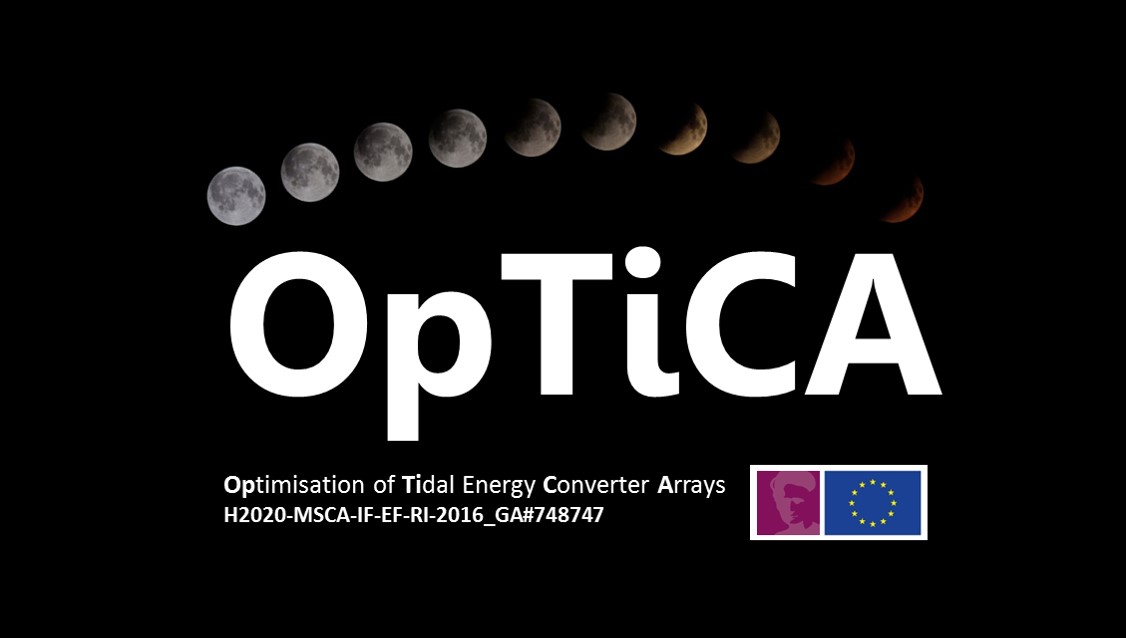

This project has received funding from the European Union’s Horizon 2020 research and innovation programme under grant agreement No 748747
Project OpTiCA (Optimisation of Tidal energy Converter Arrays) officially started on July 1st, 2017. OpTiCA is an EU funded project under the Horizon 2020 Marie Skłodowska-Curie Actions (GA: 748747). University of Algarve (UAlg) is the hosting organization, the Centre for Marine and Environmental Research (CIMA) is the department carrying out the proposed work, Dr. Eduardo González-Gorbeña is the Principal Researcher, Prof. Óscar Ferreira is the Project Advisor and Dr. André Pacheco is a research collaborator who is the Principal Investigator of the SCORE project.
As technology readiness level of Tidal Energy Converters (TECs) increases, moving from prototype demonstration to commercialisation, research efforts are focusing on TEC arrays layout optimisation to reduce costs and become competitive in comparison with other energy systems. Even though there are several prototypes of different scales that have been tested on the last years (mostly under controlled conditions) there is limited data on deployments in real conditions which negatively affects the accurate formulation of constrained problems on array schemes resulting on incomplete layout optimisation models.
OpTiCA project aims to provide a significant contribution towards the understanding of:
From the methodology point of view, constraint optimisation models will be mathematically formulated considering ocean energy protocols, data collected from in-field measurements from prototypes tested in real environments (mainly from the project SCORE - Sustainability of using Ria Formosa Currents On Renewable Energy production) and with surrogates built from validated numerical simulations. The outcomes of the project will contribute to improve common guidelines and standards for licensing tidal energy projects and de-risk financial investment.